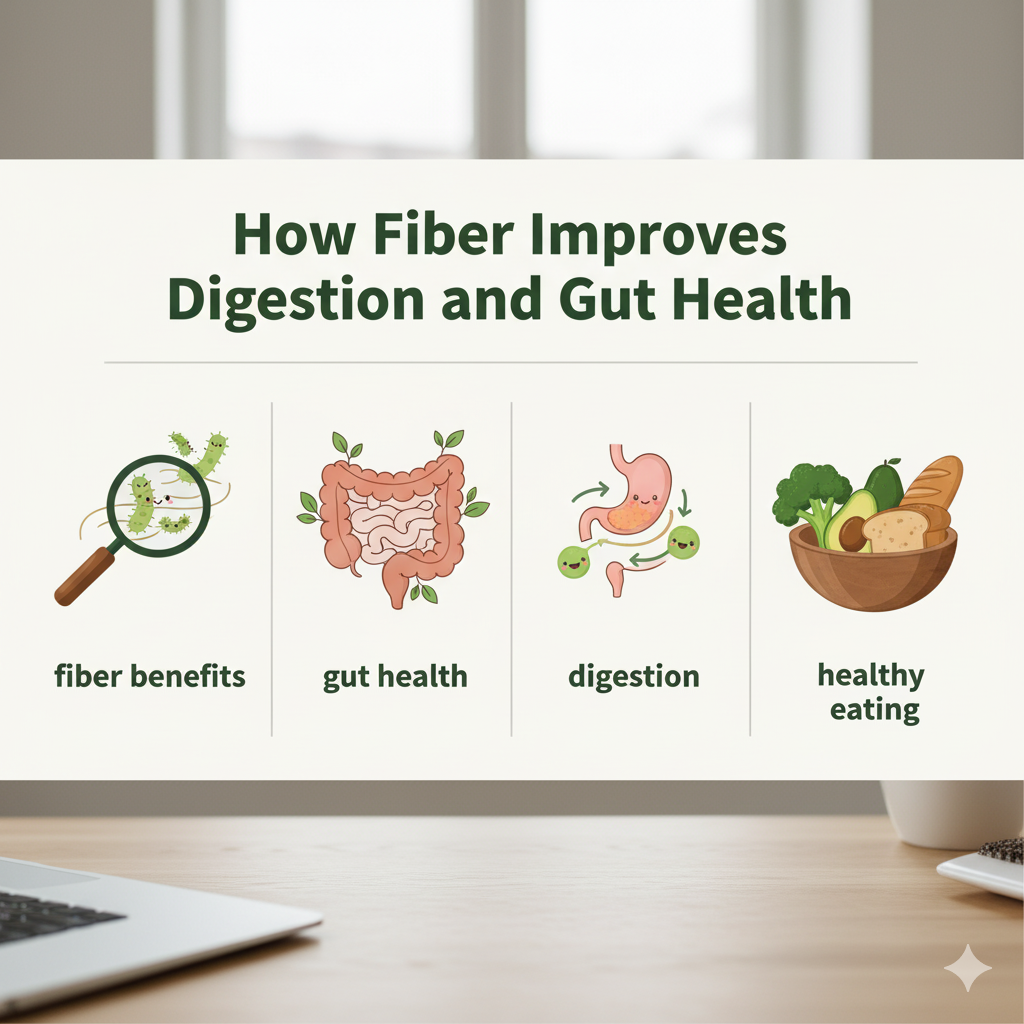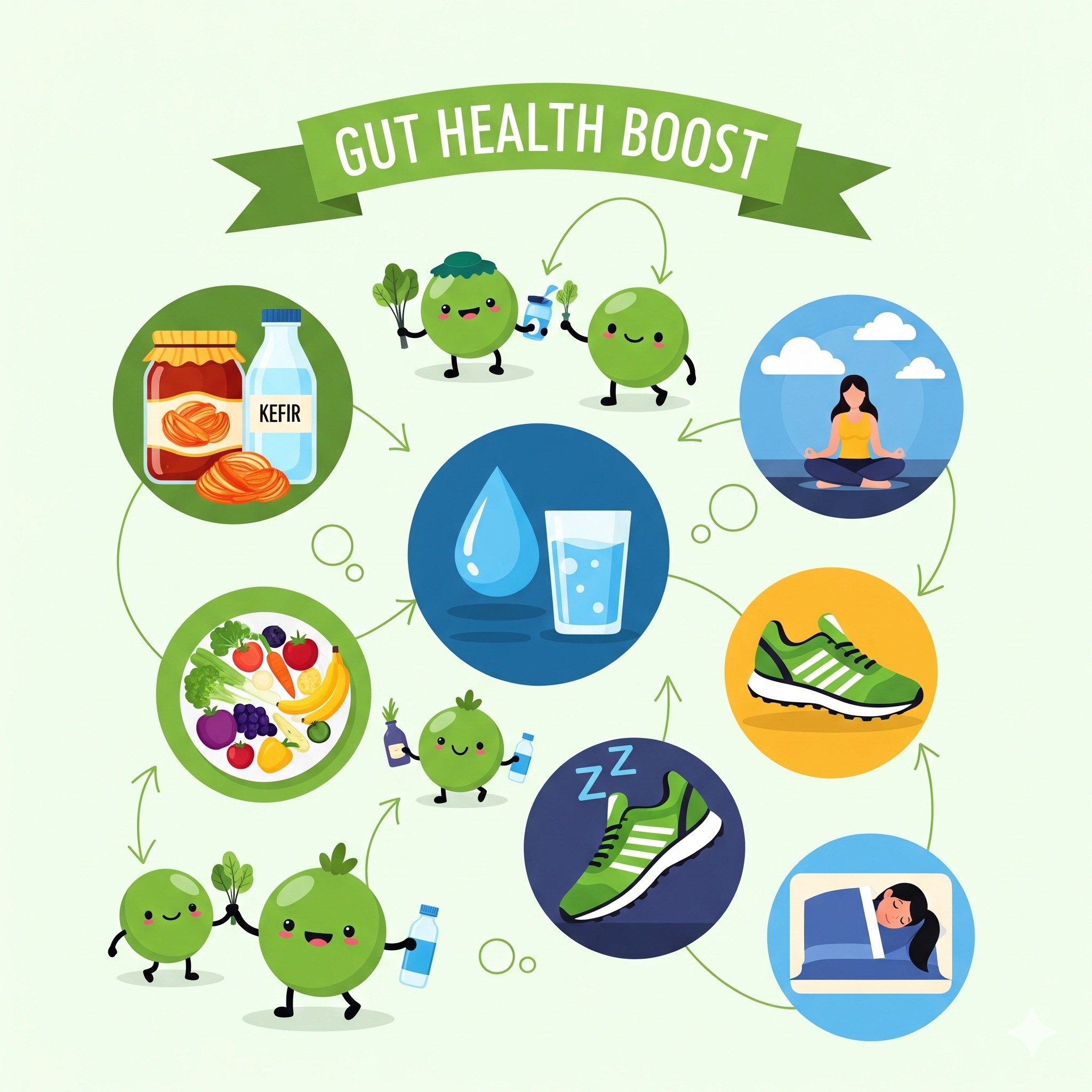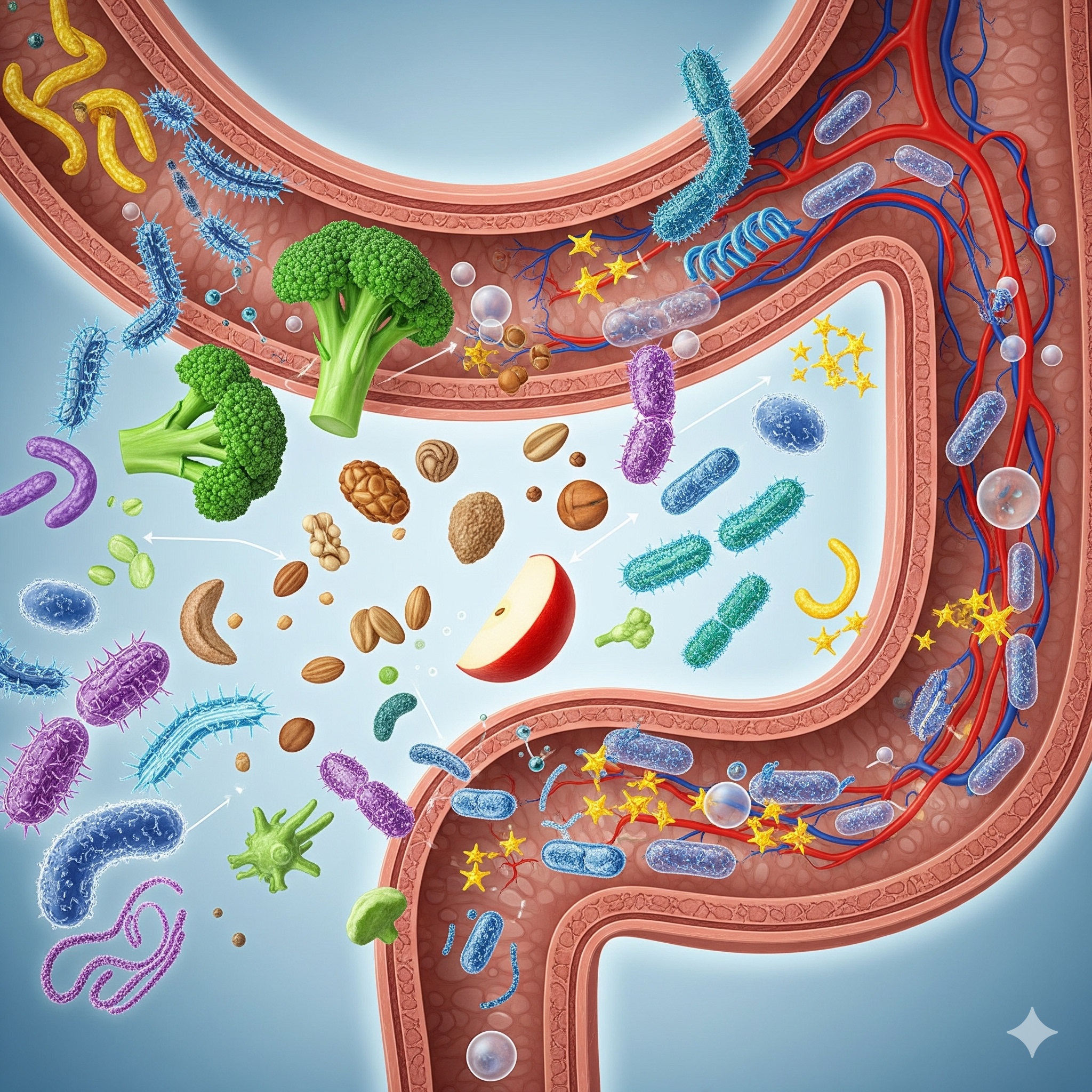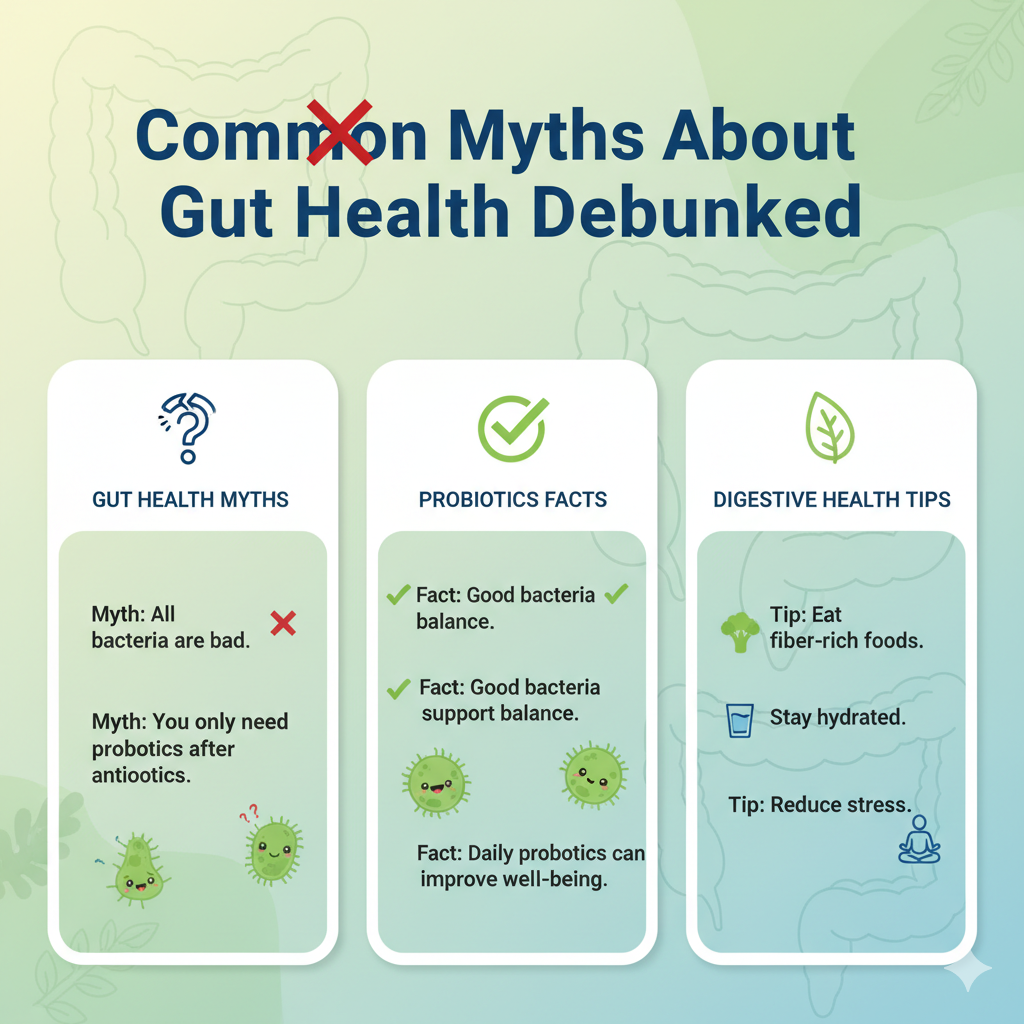When it comes to digestive wellness, fiber is one of the most essential nutrients that often doesn’t get the attention it deserves. Unlike vitamins or minerals, fiber isn’t absorbed by the body, yet it plays a crucial role in maintaining a balanced gut, supporting digestion, and promoting long-term health. Understanding how fiber works, the types of fiber, and how to include it in your diet can help you unlock the secret to a healthier digestive system and overall well-being.
What Is Dietary Fiber?
Dietary fiber refers to the indigestible parts of plant-based foods such as fruits, vegetables, grains, nuts, and legumes. While the human body cannot break down fiber into nutrients, it passes through the stomach, small intestine, and large intestine relatively intact. During this journey, fiber supports digestion in multiple ways: regulating bowel movements, feeding beneficial gut bacteria, and keeping the gut lining healthy.
There are two main types of fiber:
- Soluble Fiber
- Dissolves in water to form a gel-like substance.
- Helps slow down digestion, regulate blood sugar, and lower cholesterol.
- Found in foods such as oats, apples, carrots, flaxseeds, beans, and barley.
- Insoluble Fiber
- Does not dissolve in water and adds bulk to stool.
- Helps food move efficiently through the digestive system and prevents constipation.
- Found in whole grains, nuts, seeds, leafy greens, and the skins of fruits and vegetables.
Most plant foods contain a mixture of both types, which is why a varied diet is key.
How Fiber Supports Digestion
1. Promotes Regular Bowel Movements
One of fiber’s most recognized benefits is preventing constipation. Insoluble fiber adds bulk to stool, making it easier to pass. This helps reduce strain during bowel movements and lowers the risk of hemorrhoids or diverticulosis.
2. Feeds Beneficial Gut Bacteria
The gut is home to trillions of microbes collectively known as the gut microbiome. Certain fibers, called prebiotics, serve as food for these microbes. As bacteria ferment fiber, they produce short-chain fatty acids (SCFAs) such as butyrate, acetate, and propionate. These compounds strengthen the intestinal lining, reduce inflammation, and provide energy for colon cells.
3. Supports a Healthy Gut Lining
SCFAs from fiber fermentation help maintain the integrity of the gut barrier, often referred to as the “intestinal wall.” A strong barrier prevents harmful bacteria or toxins from leaking into the bloodstream, a condition sometimes linked to “leaky gut.”
4. Improves Stool Consistency
Fiber regulates stool consistency — softening it when too hard or adding firmness when too loose. This is why fiber is beneficial for both constipation and diarrhea.
5. Enhances Digestive Efficiency
By slowing the digestive process (especially soluble fiber), the body has more time to absorb nutrients. At the same time, insoluble fiber helps move waste out of the body more effectively.
Fiber and Gut Health
Fiber doesn’t just support digestion — it’s central to overall gut health. A high-fiber diet helps maintain a diverse and balanced microbiome. People with higher fiber intake generally have greater microbial diversity, which is linked to better immunity, reduced inflammation, and even improved mental health.
Some specific fiber-related benefits for gut health include:
- Reduced inflammation in the digestive tract.
- Better immune response, since much of the immune system resides in the gut.
- Lower risk of gastrointestinal diseases, such as colorectal cancer, diverticular disease, and inflammatory bowel disease (IBD).
Other Health Benefits of Fiber
While digestion and gut health are fiber’s primary benefits, it also contributes to:
- Heart health: Soluble fiber helps lower LDL (“bad”) cholesterol.
- Weight management: High-fiber foods promote satiety, preventing overeating.
- Blood sugar regulation: Fiber slows glucose absorption, supporting balanced energy and preventing spikes.
- Metabolic health: High-fiber diets are associated with reduced risk of type 2 diabetes.
How Much Fiber Do You Need Daily?
Nutrition experts recommend:
- Women: about 25 grams per day
- Men: about 30–38 grams per day
Unfortunately, most people consume far less — often averaging only 15 grams daily. Increasing intake gradually and staying hydrated can help you meet your fiber needs without discomfort.
Best Food Sources of Fiber
Here’s a list of fiber-rich foods you can easily add to your diet:
- Fruits: Apples, pears, berries, oranges, bananas
- Vegetables: Broccoli, carrots, spinach, kale, Brussels sprouts
- Legumes: Lentils, chickpeas, black beans, kidney beans
- Whole grains: Oats, brown rice, quinoa, barley, whole-wheat bread
- Nuts & seeds: Chia seeds, flaxseeds, almonds, sunflower seeds
- Root vegetables: Sweet potatoes, beets
Tips to Increase Fiber Intake
- Start the day with whole grains – oatmeal, whole-wheat toast, or quinoa.
- Snack on fruits and nuts instead of processed snacks.
- Add legumes to soups, salads, or stews for an easy fiber boost.
- Eat the skins of apples, cucumbers, and potatoes for extra insoluble fiber.
- Experiment with seeds like chia or flax in smoothies and yogurt.
- Stay hydrated – fiber works best when paired with sufficient water intake.
Can You Get Too Much Fiber?
Yes, excessive fiber (especially if added suddenly) can lead to gas, bloating, and abdominal discomfort. Very high fiber intake without adequate water can also contribute to constipation. The key is balance: increase gradually, spread intake throughout the day, and drink plenty of fluids.
Fiber Supplements: Helpful or Not?
While it’s always best to get fiber from whole foods, supplements like psyllium husk, inulin, or methylcellulose can be useful for people who struggle to reach their daily intake. Psyllium, in particular, has strong evidence supporting its benefits for both constipation and cholesterol management.
However, supplements lack the variety of nutrients, antioxidants, and phytochemicals found in whole foods, so they should be seen as an addition — not a replacement.
Conclusion
Fiber is much more than a nutrient that “keeps you regular.” It is a cornerstone of digestive wellness and gut health, feeding your microbiome, protecting the gut lining, and supporting a balanced digestive process. A diet rich in fiber from diverse plant sources can reduce the risk of many chronic diseases, boost immunity, and promote overall health.
Making simple changes — swapping refined carbs for whole grains, eating more fruits and vegetables, and adding legumes and seeds — can go a long way in transforming your gut health.
If you want a healthier gut, more energy, and better long-term health outcomes, start with one simple habit: eat more fiber every day.





“Great topic! Fiber is often overlooked, but it plays a crucial role in digestion and a healthy gut. I’m excited to see how science explains its benefits.”